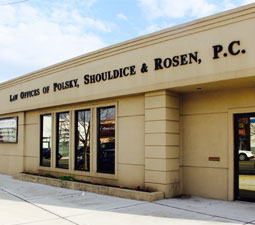
The distinction between Workers' Compensation and personal injury claims can be crucial when faced with a work-related injury. Both are designed to address injuries and provide support, but they differ significantly in their approaches, eligibility requirements, and potential benefits. Workers' Compensation specifically covers workplace injuries without needing to establish fault, while personal injury claims, often arising from negligence, can offer a broader range of compensation. To help clarify these differences, we’ve compiled answers to some of the most common questions clients ask. Working with a Queens, NY Workers' Compensation lawyer can be helpful to explore which option aligns best with a specific situation.
Can I Pursue A Workers' Compensation Claim And A Personal Injury Claim At The Same Time?
It’s possible to pursue both claims under certain circumstances, but it depends on the nature of the injury and who is at fault. Workers' Compensation typically covers injuries that occur in the workplace, regardless of fault. However, if a third party—someone other than an employer or coworker—is responsible for the injury, you may be able to file a personal injury claim against that party. For example, if you’re injured by faulty equipment, you could potentially claim Workers' Compensation through your employer and file a personal injury suit against the equipment manufacturer. Consulting with a legal professional helps us determine if pursuing both avenues is applicable and beneficial.
How Does Fault Affect Workers' Compensation And Personal Injury Claims?
Fault plays a major role in personal injury cases but not in Workers' Compensation claims. With Workers' Compensation, fault is irrelevant; employees are entitled to benefits for workplace injuries without proving any negligence. Personal injury claims, however, require proof of negligence or fault by another party. This proof allows the injured party to recover compensation for a broader range of damages, such as pain and suffering, which Workers' Compensation does not cover. Essentially, if an injury involves fault or negligence by a third party, a personal injury claim can help recover those additional damages.
What Types Of Compensation Are Available In Workers' Compensation Versus Personal Injury Cases?
Workers' Compensation benefits typically cover medical expenses, a portion of lost wages, and, in some cases, vocational rehabilitation. These benefits focus on helping the injured worker recover physically and financially. Personal injury claims, on the other hand, offer compensation for a wider range of losses, including full wage replacement, pain and suffering, loss of enjoyment, and other non-economic damages. Since Workers' Compensation benefits are usually limited to direct expenses related to the injury, personal injury claims may provide a more comprehensive financial recovery for those who qualify.
Are There Time Limits For Filing Workers' Compensation And Personal Injury Claims?
Yes, there are different time limits for both types of claims. Workers' Compensation claims must typically be filed within a short period after the injury, often within 30 days, though this varies by state. Personal injury claims, however, generally allow more time, usually several years from the date of the injury. Missing these deadlines can prevent an individual from seeking compensation. We advise clients to act quickly, as filing promptly is essential to protecting their rights and ensuring they have access to the benefits they deserve.
How Do Settlements Differ Between Workers' Compensation And Personal Injury Claims?
Settlements in Workers' Compensation cases are structured to provide specific benefits, such as medical care and partial wage replacement, with set limits on compensation. Personal injury settlements, however, can include additional damages, like pain and suffering, which are often negotiated based on the impact of the injury on one’s life. This flexibility allows personal injury claims to result in higher payouts under certain circumstances. While Workers' Compensation settlements are typically pre-defined, personal injury settlements offer more negotiation opportunities to account for unique factors in each case.
Choosing The Right Path For Workplace Injury Compensation
Knowing the distinctions between workers’ compensation and personal injury claims can help guide your approach and recover the benefits that you need after an injury. Our team is available to answer questions and discuss the best steps forward in your case. Reach out today to discuss your options. For more guidance, the dedicated attorneys at Polsky, Shouldice & Rosen, P.C. have been practicing since 1991, and are ready to assist, we offer free consultations.


